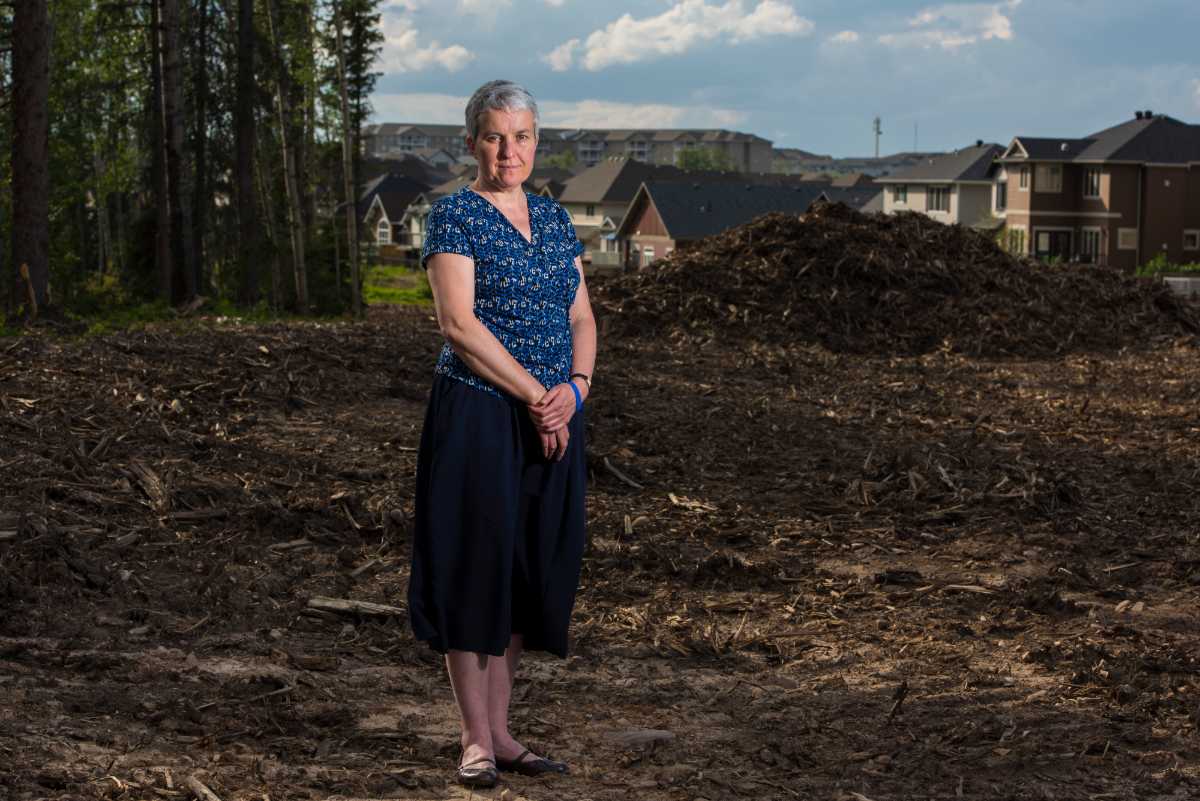
Professor Tara McGee in the Department of Earth and Atmospheric Sciences is taking a closer look at the experiences of indigenous communities during wildfire evacuations-and how these findings can aid in policy development for future evacuation needs. Photo credit: John Ulan
For members of indigenous communities, the question of abandoning home during mandatory wildfire evacuations is a complicated one, according to new research by a researcher in the University of Alberta's human geography program.
The research-examining the experiences of Mishkeegogamang Ojibway Nation in Ontario during a mandatory wildfire evacuation in 2011-is the first to examine the reasons behind why indigenous people did or did not want to leave their communities during mandatory wildfire evacuations.
While some residents wanted to leave, others were reticent until being encouraged by fellow community members or directed to leave by law enforcement, explained Tara McGee, professor in the Department of Earth and Atmospheric Sciences and lead author on the study.
"People also wanted to stay within their community and traditional territory, because that is home," said McGee. "In some cases, people had never left their traditional territory before, and the idea of going to a town where they had never been was extremely unfamiliar during an already traumatic time. As a result, quite a few people either wanted to stay or actually did stay behind."
Evacuation in the event of wildfires generally brings evacuees to large municipal centres, with resources and housing already in place in towns or cities. But for indigenous communities, this may not be the best way forward.
"We need to investigate the option of, when faced with a fire or a threat, allowing people to stay within their traditional territory safely, if there are the resources to do that," said McGee. "Alternatively, evacuating to another indigenous community. That way, access to appropriate supports and language barriers would not present issues the same way as when people are evacuated to large, unfamiliar towns and cities."
McGee hopes that future research will take her to other provinces and territories in Canada to understand how other indigenous communities respond to evacuation notices. She hopes these findings will aid in federal, provincial, and regional policy development for future evacuation needs.
This publication is part of the First Nations Wildfire Evacuation Partnership. The paper, "Residents' wildfire evacuation actions in Mishkeegogamang Ojibway Nation, Ontario, Canada," in the International Journal of Disaster Risk Reduction (doi: 10.1016/j.ijdrr.2018.10.012).